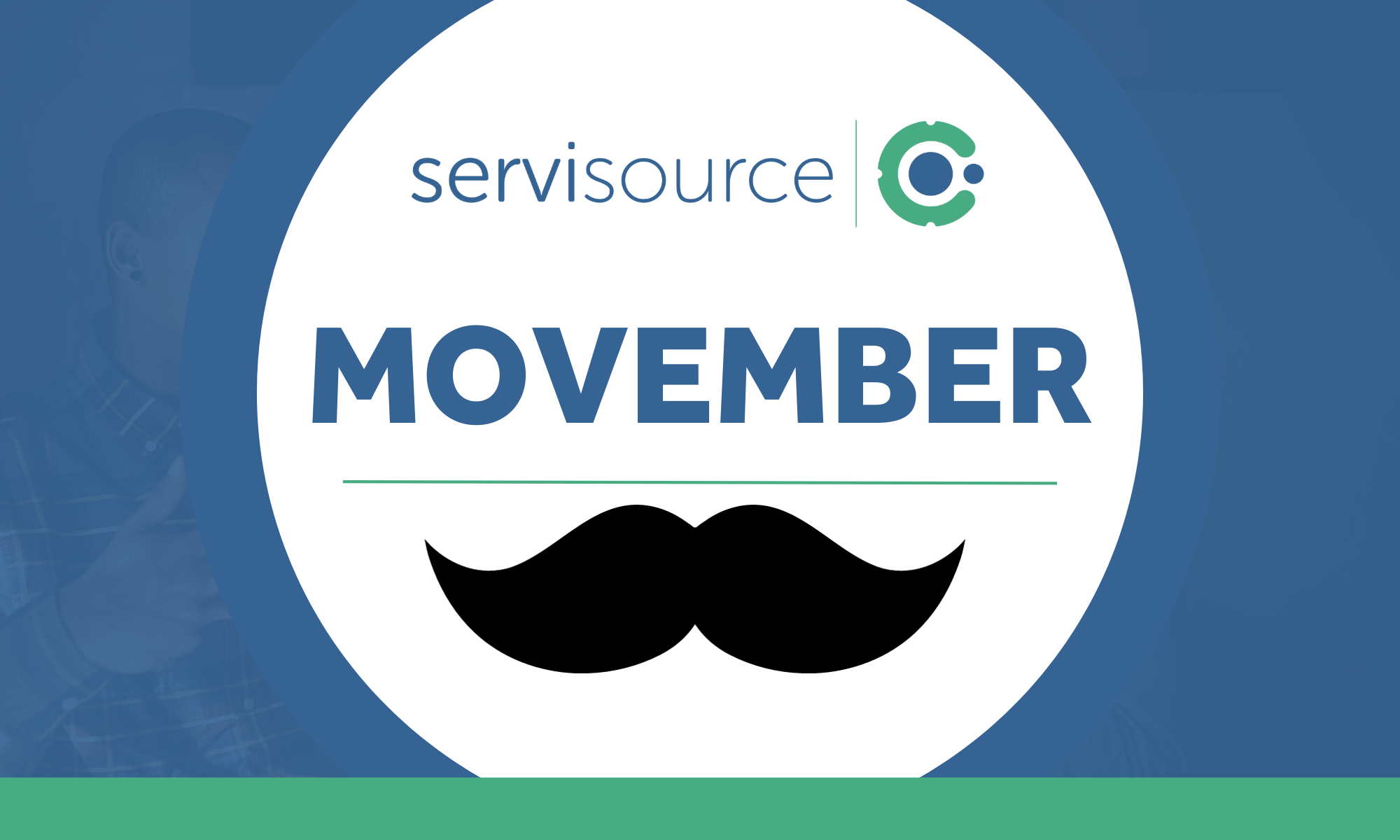Category: Homecare/Healthcare
Guidance And Support For Prospective Overseas Candidates
NHS Employers is distributing an update from the Department for Health and Social Care. It states that the guidance for international applicants seeking health and social care jobs in the UK has been revised and reissued. This guidance and support for prospective overseas candidates offers assistance by providing advice on avoiding scams, recognising exploitation, and offering practical information necessary for seeking employment in the UK. It has been divided into two parts for easier access. All international candidates thinking about applying for a health or social care job in the UK should read this guidance and support first.
At Servisource, our recruitment team are aware that healthcare staff can be anxious when moving across the world to another country. However, our team ensure they feel like extended family members by putting them at ease, providing a meet and greet at the airport, supplying a sim card to call loved ones back home when they arrive, escorting them to their accommodation and in some instances taking them on their first shopping trip. This ensures they settle into their new home and surroundings well.
Part 1: Applying for health and social care jobs in the UK from abroad
Healthcare in the UK is mainly provided by the National Health Service (NHS), a group of public bodies that provide or arrange medical care for all permanent residents in the UK (England, Scotland, Wales, and Northern Ireland). There are many varied jobs in the health and social care sector. Some jobs need specific training and skills, and to practice, professionals must join professional registers. Part 1 provides support for prospective overseas candidates applying for jobs including information on:
Building CapacityBuilding Capacity
1. Finding a good recruitment agency
There are 2 main ways you can be recruited to the UK. You can apply for jobs directly via a jobs board such as NHS jobs or Find a job in social care. Or apply for jobs via a recruitment agency or recruitment organisation. If going through a recruitment agency, check if the agency has a strong track record and positive reviews from both candidates and employers.
Servisource has become one of Ireland’s leading national and international suppliers of high quality and innovative recruitment and healthcare staffing solutions, enabling continuity of care during peaks in demand, by providing cost-effective solutions which help our longstanding clients manage budgets, reduce workloads, maintain staffing levels and deliver premium patient care. Our team conduct all necessary compliance, educational and police checks, and offer visa assistance and onboarding help when needed.

Building CapacityBuilding Capacity
2. How to check if a job is untrustworthy
If you’re applying for a job with an independent provider (not publicly funded like the NHS), check that the company is real by looking it up on the Companies House website.

Building CapacityBuilding Capacity
Building CapacityBuilding Capacity
3. Understanding finances
Be clear what costs you’ll need to pay during the recruitment process and whether your employer will pay any of these for you. For most visas, including Health and Care Worker visas, you are not entitled to financial help from the UK government (this is also called ‘no access to public funds’). It is advised to check the following:

Building CapacityBuilding Capacity
Building CapacityBuilding Capacity
4. Employment offers and contracts
Make sure you get a job offer letter from your employer which details the salary, hours, location and any repayment clauses before accepting a job and travelling to the UK. Do not allow anyone to pressure you into signing a contract until you’re comfortable with what is included. Do not sign a different contract on arrival in the UK. Some employers have used this as a way of reducing your rights. All employers should provide:

Building CapacityBuilding Capacity
Building CapacityBuilding Capacity
5. Visas, family dependants, professional regulation and employer support
Information is available though the Health and Care Worker visa requirements guidance if applying for that visa. For care workers or senior care workers, dependants can’t join them in the UK unless they are on a Health and Care Worker visa applied for before 11 March 2024.

Part 2: living and working in the UK , what you need to know as a health and care worker
This part is a guide that provides advice on how to recognise the signs of exploitation, how to avoid it and what to do about it. The code of practice for the international recruitment of health and social care personnel sets out the UK government’s written guidelines for ensuring that international recruitment of health and social care staff is done ethically. Part 2 provides support on the following topics:
Building CapacityBuilding Capacity
1. Be aware of exploitation
Be aware of the signs of exploitation. These include being forced to work under poor conditions, without reasonable time off and for little or no payment. Money and fees issues are discussed as well as working hours and quality of care being provided.

Building CapacityBuilding Capacity
2. Arranging accommodation
Make sure you have a clear plan for where you will live, who is arranging it and for how long. For advice on looking for a home through a private landlord or letting agent, see Shelter.

Building CapacityBuilding Capacity
Building CapacityBuilding Capacity
3. Worker legal rights, working hours and taking on additional work
Your rights as a worker are protected by UK law. Read the GLAA workers’ rights leaflet. By law, you must not work more than 48 hours a week on average, unless you ‘opt out’. Even if you opt out, you must take rest breaks from work.

Building CapacityBuilding Capacity
Building CapacityBuilding Capacity
4. Employment changes and your visa
Your visa may be affected if you change jobs, lose your job, or your employer loses their sponsorship licence. Please note that your employer cannot deport you, the Home Office will decide whether to cancel your visa or not.

Building CapacityBuilding Capacity
Building CapacityBuilding Capacity
5. Equality and inclusion in the workplace
You’re legally protected from discrimination by the Equality Act 2010. If you think you’ve been unfairly discriminated against, you can contact the Equality Advisory Support Service for help and advice, or contact your trade union.

Building CapacityBuilding Capacity
Building CapacityBuilding Capacity
6. Organisations to support you during your employment
If you join after a problem has occurred it is harder for these organisations to represent you, so consider joining when you first start your job. You’ll need to pay a membership fee, but some trade unions offer a discounted membership fee for international members.

Servisource want to make sure the process of recruitment is understood, and that healthcare workers are well informed about working rights and standards and have the information needed to make decisions. For detailed information on the above, please refer to the gov.uk website.
Nurses and Care Workers Immigration Policy Update
At Servisource, we strive to keep healthcare workers updated with the latest information. Back in December 2023, the UK government revealed adjustments to the immigration system, and it has been revealed that these adjustments are set to be enacted in March and April 2024. The timeline for implementation of these changes to the UK’s immigration policy and what these changes entail are outlined below as well as how they will impact international recruits across NHS trusts.
Did You Know?
Figures published in November, state that health and care visas were the most common type of work visa on which dependants came to the UK, adding that this was driving the increase in immigration of those on work dependant visas.

What will these changes entail?

Below is a description of how these changes will impact various international staff across the NHS and social care.
Health and Care Visas:
The Government advises that while it is determined to reduce net migration, it understands the importance of internationally educated health and care workers. The measures will crack down on rising migration, help curb the abuse of the Health and Care visa route and ensure British labour is not undercut by overseas workers.
When will these changes be implemented?

The changes to care workers and senior care workers will be implemented on 11 March 2024. From this date care workers (SOC 6145) and senior care workers (SOC 6146) will be unable to bring dependents when they migrate to the UK, and only CQC-registered providers in England will be able to sponsor Health and Care Visa applicants. These changes do not affect those employed on a Health and Care visa on other occupation codes (SOCs).
The changes to salary thresholds for Skilled Workers will be introduced via Immigration Rules with implementation in April 2024.
The increase of the Immigration Health Surcharge will increase to £1,035 on 6 February 2024.
International Recruitment at Servisource
Our team recruit Nurses and Care Workers across all disciplines from around the world.
We manage all aspects of the recruitment process including interview scheduling, compliance checks, and even welcome international candidates by meeting them at the airport.
Servisource operate regionally, nationally and globally, providing access to the right people with the right skills and knowledge in the right place.
The forthcoming changes to the UK’s immigration system signify a pivotal moment for international recruitment within NHS trusts. Until these adjustments are put forward in March and April 2024, it’s important to stay informed and prepared for the potential impact on employment and visa procedures for overseas workers. By staying vigilant and proactive in navigating these developments, we can ensure the continued strength and effectiveness of healthcare services across the UK.
Please continue to check the NHS Employers and GOV.UK websites for the latest updates and information.
How to Support Men’s Health this November
Movember, the global movement that has taken the world by storm, encourages men to grow moustaches during the month of November. This movement raises awareness about how to support men’s health, particularly prostate cancer, testicular cancer, and mental health problems. In the United Kingdom, this movement has gained significant traction, and this can especially be seen in how the National Health Service (NHS) has created strategies in support of this cause. They address the critical health challenges faced by men, encouraging open conversations and fostering a sense of community.
This awareness highlights the importance of early detection and treatment and emphasises the significance of mental well-being in overall health. It’s aim is to create a brighter, healthier future for men all over.
Did You Know?
Men’s life expectancy is 3.7 years less than females.
Men go to the doctor less than women.
Men are 3 times more likely to die from suicide, than women.

The NHS has created a toolkit designed to help NHS organisations reduce the risk of suicide in their workforce. It will assist organisations to embed suicide prevention strategies in their health and wellbeing policies and guide the approach to supporting those at risk of suicide within the workforce.
Suicide does not discriminate, it affects NHS staff too. In fact some healthcare professions are at a higher risk of suicide than other professional groups.
For information and resources to support health and wellbeing, visit the NHS England website.
There are a number of ways individuals and healthcare professionals can contribute to this very important cause. This involves awareness, fundraising, and proactive involvement.
Raise Awareness:
Fundraising Activities:
Promote Healthy Lifestyles:
Education and Training:
Servisource Healthcare and Supporting Employee Health

Our partnership with Zevo Health provides employees with access to the Zevo App, offering meditations, recipes, challenges, fitness plans, and mental health resources. Monthly Wellness Webinars cover a range of topics, ensuring our support meets diverse needs. Participation in Ireland’s Fittest Workplaces and Company-Wide Steps Challenges encourages physical activity and camaraderie among employees. Mental Health Champion Training equips selected employees with the skills to support their colleagues’ mental wellbeing.
At Servisource, we believe that a healthy workforce is a happy and productive one allowing us to provide the right people with the right skills and knowledge in the right place.
By fostering open conversations and raising awareness, barriers can be broken down, encouraging men to prioritise their health. Active participation in Movember, through activities like growing moustaches and organising fundraising events, empowers communities to contribute to vital research and support services.
Collaborations between healthcare facilities, professionals, and mental health experts ensure that men receive the necessary guidance and assistance, while promoting healthy lifestyles and regular check-ups. This fosters a future where preventable diseases are detected early, and mental health challenges are met with understanding and compassion. Together, we can make a lasting difference, transforming the landscape of men’s health.












